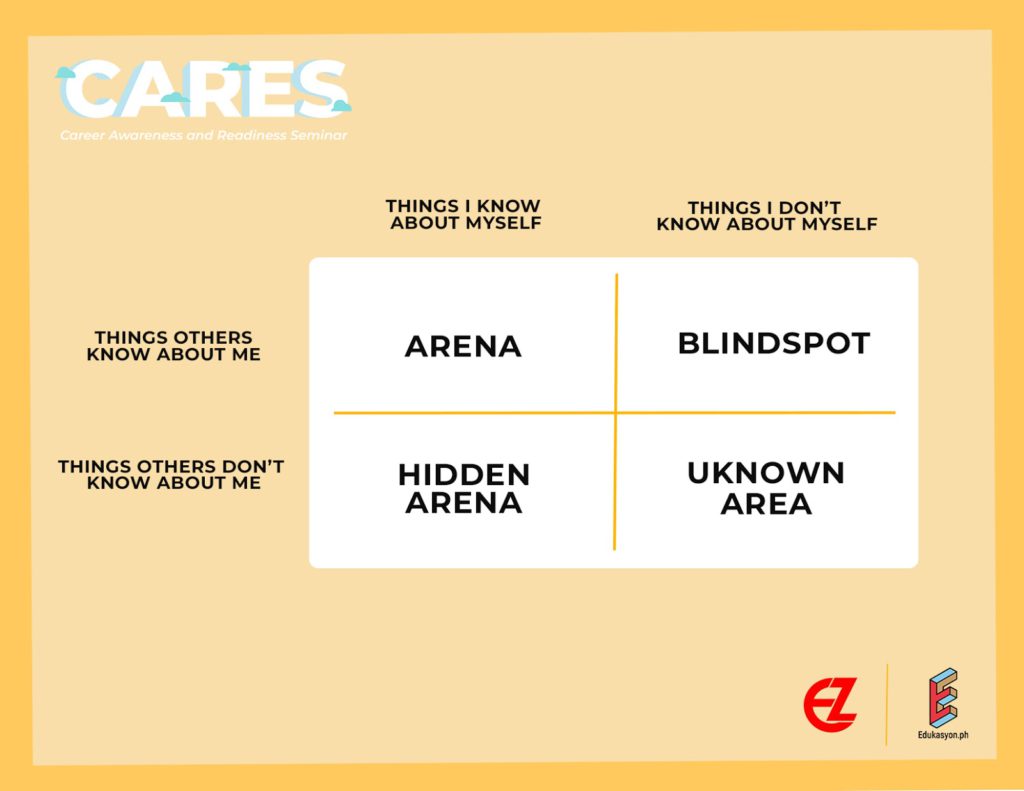Exercise: Johari Window
Building on your PICS reflections from the last module, this exercise will ask you to consider other people’s perspectives. It is a fun, eye-opening practice of self-awareness that allows you to ask for feedback and analyze them in relation to your internal self-awareness.
The Johari Window was invented by Joseph Luft and Harrington Ingham in the 1950s as a model for mapping personality awareness. By describing yourself from a fixed list of adjectives, then asking your family, friends, and classmates/colleagues to describe you, a grid of overlap and difference can be built up. When you complete this activity, the Johari Window will come up with “windowpanes” – insights into your personality from four different perspectives:

- Arena: These are the traits that you know about yourself and that others know about you as well. The things that fall under this windowpane are aspects of yourself that you deliberately and knowingly reveal to your friends, family, and acquaintances. The bigger your Arena is, the more open and honest you are in presenting your authentic self to the world. It means that you are aware of your strengths and weaknesses and how they may impact people.
- Hidden Arena: These are the traits that you know about yourself, but may be hidden from other people. Perhaps these are parts of yourself that you deliberately hide from other people, whether out of insecurity or uncertainty. However, the things in your Hidden Arena may also be talents that you think you reveal, but are not actually obvious and well communicated to other people. It is important to reflect on your Hidden Arena and determine which positive qualities deserve to be shared with the world. They might be missing out!
- Blind Spot: These are the traits that others know about you, but you may not know about yourself. Perhaps one of the most interesting windowpanes, the Blind Spot contains information that you fail to recognize about yourself. They could be abilities that other people appreciate you for, or negative habits that you don’t notice but others do. If you find your Blind Spot filled with surprising traits, take it as an opportunity to embark on another level of self-reflection and contemplate on the opportunities you might be missing, talents that you underestimate, and potential improvements you can make to become a better version of you.
- Unknown Area: These are traits that you and other people may not know about yourself. They can either be weaknesses, or simply abilities and potentials that you haven’t discovered yet. This windowpane offers a quick view of possibilities – skills you may be interested in learning in the future, traits you can cultivate to improve your relationships with others, or even untested weaknesses under circumstances. A reflection on your Unknown Area can help you to be open to these possibilities and inspire additional learning.
